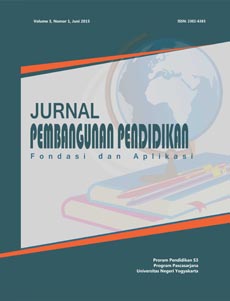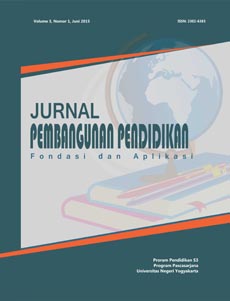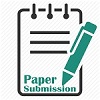Teachers in the perspective of idealistic philosophy: A systematic literature review
DOI:
https://doi.org/10.21831/jppfa.v12i2.68664Keywords:
teacher, idealistic philosophyAbstract
Idealistic philosophy positions reason, morality, and the human mind as the highest forms of reality. Within this philosophical framework, teachers hold a central role as ethical exemplars and intellectual guides who shape students’ character and behavior. This systematic literature review aims to synthesize scholarly perspectives on the roles, responsibilities, and expected characteristics of teachers according to idealistic philosophy. Using a Systematic Literature Review (SLR) method, this study examined 16 relevant national and international articles published within the last decade. The analysis followed qualitative procedures involving data reduction, organization, and thematic interpretation. The findings reveal that teachers, from the viewpoint of idealistic philosophy, embody three essential dimensions: (1) Teacher obligations, which include moral superiority, mastery of knowledge, and the ability to foster active and meaningful learning; (2) Teacher responsibilities, involving guiding students’ intellectual growth, instilling ethical values, and ensuring that knowledge is translated into action; and (3) Teacher personality, encompassing integrity, intellectual excellence, communicative competence, and continuous self-development. Overall, this review highlights that idealistic philosophy emphasizes teachers as role models whose moral and intellectual authority significantly influences educational practice and student development.
References
REFERENCES
Arfandi, K. (2021). Guru Sebagai Model dan Teladan dalam Mengingkatkan Moralitas Siswa. Edupedia, 6(1), 8. https://doi.org/10.36835/tarbiyatuna.v13i2.643
Effendi, B. Z. (2014). Merengkuh Kembali Idealisme Guru PAI dalam Rangka Mewujudkan Sikap Profesional. Jurnal Pendidikan Pascasarjana Magister PAI, 2(1), 33–51.
Esteban, F. (2016). Standing at a hinge of history: what today's universities can learn from past philosophies of higher education. Australian Educational Researcher, 43(5), 629–641. https://doi.org/10.1007/s13384-016-0217-4
Fatimah, F., Neviyarni, N., & Irdamurni, I. (2023). Idealisme dan Implementasi Kurikulum Merdeka Belajar Pada Pendidikan di Sumatera Barat. Innovative: Journal Of Social Science Research, 3, 6309–6320. http://j-innovative.org/index.php/Innovative/article/view/1101
Hanifah, R., & Desyandri. (2023). Konsep Pendidikan Merdeka Belajar Perspektif Filsafat Idealisme. Pendas :Jurnal Ilmiah Pendidikan Dasar, 08(1), 116.
Harahap, R. M. (2022). Idealisme, Keikhlasan dan Komitmen: Pemaknaan Profesi Guru di Lingkungan Pesantren Modern. Jurnal Idrak, 4(2), 357–370.
Heeng, G., Danial, R., Panide, Y., Zega, Y. K., Real Batam, S., & Indonesia, U. K. (2023). Implikasi Aliran Filsafat Idealisme terhadap Praksis Pendidikan Agama Kristen. Jurnal Salvation, 41(1), 30–46. http://jurnal.sttbkpalu.ac.id/index.php/salvation/index
Illahi, N. (2020). Peranan Guru Profesional Dalam Peningkatan Prestasi Siswa Dan Mutu Pendidikan Di Era Milenial. Jurnal Asy-Syukriyyah, 21(1), 1–20. https://doi.org/10.36769/asy.v21i1.94
Indra, I. M., & Cahyaningrum, I. (2020). Metode Penelitian Pendidikan. Deepublish.
Khasawneh, O. M., Jarrah, A. M., Bani Hani, M. S., & Belbase, S. (2023). Idealism as an educational philosophy of mathematics teachers in Al Ain City Schools of the United Arab Emirates. PLoS ONE, 18(2 February), 1–29. https://doi.org/10.1371/journal.pone.0279576
Krisdiana, M., Malihah, S., Hidayat, S., & Dewi, R. S. (2022). Implementasi filsafat pendidikan idealisme di sekolah dasar. Jurnal Pendidikan Dan Konseling, 4(6), 6561–6567.
Lestari, E. E., & Desyandri. (2023). Filsafat Idealisme Dan Analisis Implementasi Kurikulum Merdeka Di Sekolah Penggerak Sekolah Dasar Di Sdn 216/Iii Sungai Langkap. Pendas :Jurnal Ilmiah Pendidikan Dasar, 8(1), 86–96.
Lubis, M. S. (2018). Metodologi Penelitian. Deepublish.
Mubin, A. (2019). Refleksi Pendidikan Filsafat Idealisme. Rausyan Fikr : Jurnal Pemikiran Dan Pencerahan, 15(2), 25–39. https://doi.org/10.31000/rf.v15i2.1801
Murti, A. B., Fakhrun Gani, A. R., & Alvionita, D. (2021). Gagasan Idealisasi Pembelajaran Biologi Dari Berbagai Sudut Pandang. Bioilmi: Jurnal Pendidikan, 7(2), 67–72. https://doi.org/10.19109/bioilmi.v7i2.11508
Muslim, A. (2023). Landasan Filsafat Idealisme dan Implementasi Kurikulum Merdeka Belajar. JETISH: Journal of Education Technology Information Social Sciences and Health, 1(1), 34–40. https://doi.org/10.57235/jetish.v1i1.35
Rusdi. (2013). Filsafat Idealisme (Implikasinya dalam Pendidikan). Jurnal Dinamika Ilmu, 13(2), 291–306. https://doi.org/10.21093/di.v13i2.70
Salmiyanti, S., & Desyandri, D. (2023). Implementasi Kurikulum Merdeka Belajar Dalam Pandangan Filsafat Idealisme. Jurnal Ilmiah Universitas Batanghari Jambi, 23(2), 1371. https://doi.org/10.33087/jiubj.v23i2.3379
Shagena, A., & Syarifuddin. (2022). Peran Filsafat Idealisme Serta Implementasinya Pada Pendidikan. Jurnal Ilmiah Kependidikan, 17(2), 45–54.
Suasthi, I. G. A. (2020). Analisis Swot Konsep Dasar Filsafat Idealisme Implikasi dan Aplikasi dalam Pendidikan. Sanjiwani: Jurnal Filsafat, 9(1), 1. https://doi.org/10.25078/sjf.v9i1.1607
Suastika, I. N. (2022). Implementasi Kurikulum 2013 (Idealisme dan Tantangan Membangun Kualitas Pendidikan). Jurnal Pendidikan Kewarganegaraan Undiksha, 10(2), 291–300. https://ejournal.undiksha.ac.id/index.php/JJPP/article/view/46959
Yanuarti, E. (2016). Pendidikan Islam Dalam Perspektif Filsafat Idealisme. Jurnal Pendidikan Islam, 1(2), 146–166.
Published
How to Cite
Issue
Section
Citation Check
License
Copyright (c) 2025 Jurnal Pembangunan Pendidikan: Fondasi dan Aplikasi

This work is licensed under a Creative Commons Attribution-ShareAlike 4.0 International License.
The Authors submitting a manuscript do so on the understanding that if accepted for publication, copyright publishing of the article shall be assigned to Jurnal Pembangunan Pendidikan: Fondasi dan Aplikasi
 | Jurnal Pembangunan Pendidikan: Fondasi dan Aplikasi by https://journal.uny.ac.id/index.php/jppfa is licensed under a Creative Commons Attribution-ShareAlike 4.0 International License. |













